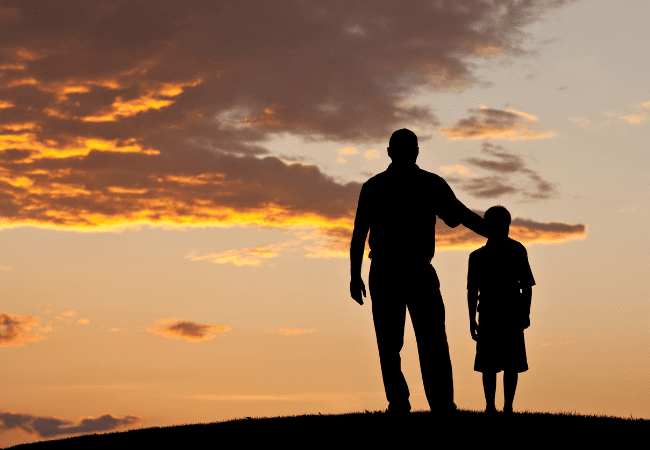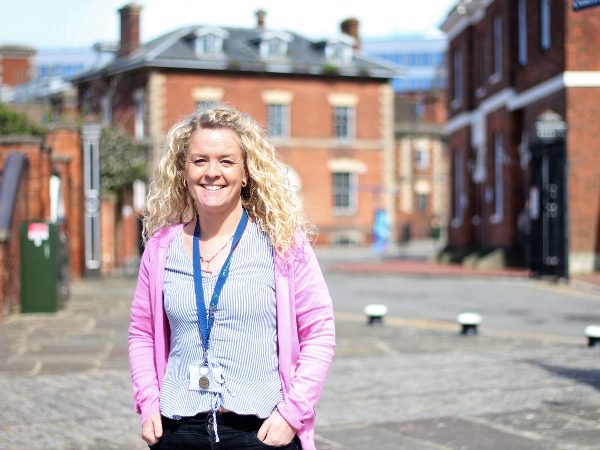
At YG we have been exploring Mindfulness and how the practice of it can help both our staff and young people in their day to day lives.
5 March 2020
Mindfulness seems to be the hot topic of the moment with lots of people talking about its benefits but what is it really all about?
Chris Long is a Programme Leader here at YG and also a qualified “Mindfulness Now” instructor (the only mindfulness qualification approved by the British Psychological Society.) Chris tells us a bit more about Mindfulness and how he has been supporting staff and young people at YG to develop their own practice.
“Mindfulness is a moment to moment practice of non- judgemental awareness. It’s all about living in the present, in the here and now. Mindfulness draws on some of the same beliefs as Buddhism and uses meditation to practice staying totally in the present moment. Living in the present moment being totally aware brings a sense of peace and joy. Our mind-set is naturally negative – so when left to run away on auto pilot our thoughts stray towards the negative and can cause feelings of anxiety, fear and anger. Mindfulness allows us to take control of our naturally negative habits.
“There are so many benefits to practicing mindfulness. It can help reduce stress, lower blood pressure, improve relationships, confidence and self-esteem and improve clarity and focus. People find they are able to sleep better and concentration levels improve.
“Mindfulness is built upon practicing non-judgmental awareness – the ability to not react automatically based on our past experiences. When we are aware of our built in judgements it gives us more space to think about our reactions. Mindfulness is about cultivating patience, kindness and peace – for yourself and others especially during times when the mind is very busy. We practice acceptance; the ability to see and accept things as they really are. This doesn’t mean that you can’t change things. It means you accept it as it is in the here and now giving us a sense of peace, space and contentment and enabling is to make informed mindful decisions.
“The young people we work with at YG often have complicated and complex lives. They can face challenges, difficult decisions, many have low confidence or struggle to concentrate. The staff here have a busy day supporting young people and balancing their work and personal lives. Bringing mindfulness into the workplace has given both young people and staff a new set of skills to slow down their thought process, celebrate the here and now and give them focus.
“Staff meet every morning for a 10-20 minute meditation. It’s a great way to start off the working day. Creating peace and giving us the space to take on the day. What does a meditation look like? It is about finding a quiet and peaceful state that allows you to focus on the now without getting distracted by thoughts that can constantly enter our mind. You don’t have to meditate for a long time but the more you do it the easier it becomes.
“Here is an example of a three minute breathing space meditation you could try at home.
- Step one, focus on what you are feeling in your body. How do you feel physically and emotionally in your body? Think non-judgmentally for about a minute. Just noticing how you feel not engaging or allowing your thoughts to go further.
- Step two, bring your awareness to your breath, narrowing your attention. Focus on a place on your body such as your nose, stomach or throat, for a minute.
- Step three, Widen your awareness and if you can practice breathing into your whole body, focus on the sensation of your breath entering and leaving your body. Accepting who you are in that moment non-judgmentally and not striving to attain any special state.
“As you try to focus you may find that lots of thoughts pop into your head and that’s ok. The point of meditation is to practice acknowledging the thought and then letting is pass without getting wrapped up in it. The more you practice the easier it becomes. One of the biggest misconception about mindfulness meditation is that you have to clear your mind and although this can happen, the main goal is learning to be aware of your thoughts, noticing them but not engaging in them. Always bringing your awareness back to a focus point in the present moment which is usually the breath. You are bringing yourself back to the present moment whenever you notice you slip into a thought pattern.
“I also bring mindfulness into the work I am doing with young people. It helps them to process things before they reach a level of anxiety and stress. It also helps them to understand their triggers. We do things like complete short tasks, like colouring, in silence. This helps bring them back to the present. I often question any judgements they make about themselves or others and open discussions about where those judgements come from and whether they are helpful. We discuss how they can approach everyday situations with kindness and wisdom always bringing the discussion back to the here and now. It is amazing how much calmer sessions can become and it is impressive to see new reactions to situations that may have previously caused a heated response.
“I encourage both staff and young people to incorporate mindfulness into their daily routine by setting reminders to complete mindfulness practices at home. Using apps to follow meditations at home or to do one mindful task a day such as washing up or cleaning your teeth. Why not try it yourself? Take a task that you do every day without thinking – like cleaning your teeth. We often switch on to autopilot, so much so you may not even remember whether you did the task at all. Stop. Focus on the task. How does it feel, sound, taste? What are the sensations? Soak it all in and enjoy being in that moment.
“Mindfulness has proved beneficial here at YG and staff have welcomed the practice and are continuing to develop their skills and consider the ways in which they can create a more positive work environment for both themselves, their colleagues and the young people and families we work with.”
YG are able to offer sessions of mindfulness to schools and colleges looking for ways to support young people. Contact us to find out how we can introduce Mindfulness to your setting.
You may also like...
Redesigning Graphic House: Creating the safe spaces young people deserve

Meet Jamie – Learning, growing, and giving back through Youth Work

From Probable Mental Illness to Wellness

Young Gloucestershire’s ED and I journey

